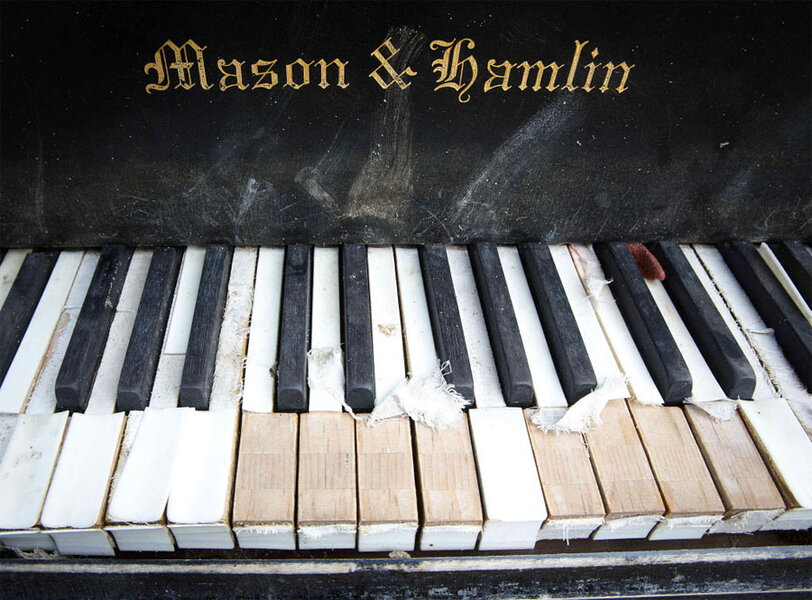Piano men
Loading...
Yes, I admit I was expecting the men at the door. Yes, I admit I still jumped when I saw them. The smallest of the three could have taken down a grizzly in one swipe. My entire front porch was in eclipse.
“Gosh, you’re big! You must be Big Al,” I said to the middle one before I was able to rein myself in. He probably hears the same thing a dozen times a day. But he gave a solar smile anyway, as he probably does a dozen times a day, and slotted himself through the door with a practiced dip-and-shrug.
We chose Big Al’s Moving Company because of his compelling advertisement, in which he is shown lifting an entire piano by himself. I’d assumed it was a toy piano. Clearly, it was not.
I’ve been having pianos moved for 40 years. I bought a big boxy one in college that weighed an easy ton, and every year – because for some reason everyone swapped apartments once a year – I gathered the gang, and we moved it.
It took a good dozen men and a casual attitude toward rental property, but the thing always got accomplished. One fellow always made the same joke about wishing I’d taken up the clarinet. We’d congratulate ourselves and pick at the divots in the wallboard. It began to feel like a tradition.
My husband, Dave, points out that there was no explicit mention of piano-moving in our marriage contract, but I maintain it was covered by the for-better-or-for-worse clause. When we moved into our house, I bought another boxy upright and assigned it to a small room. I had no choice: All the rooms were small.
After a few years, I got a hankering.
“I was thinking,” I said, with an unfocused look that Dave has learned to be wary of, “if we took out that wall, do you think we could fit in a grand piano?”
The “we” in sentences like that does not actually include me. Dave gave me a few weeks to get over it, and then got out the maul and crowbar. A while later we had a larger room and a new piano. It was grand in every way – for a few years. But they made even bigger pianos. Nicer pianos.
“I was thinking,” I said to Dave one day, with a hazy stare in the direction of the piano.
“I hate when you do that,” he said. He looked tense and miserable and left the room before I could get any traction on my thought. But after a bit he returned with a look of resignation and a measuring tape.
“How big do these things get?” he emitted.
He was pretty good about it. The new piano was still a foot shy of concert size, but I declared myself satisfied, and I meant it.
Enough years passed that Dave began to let down his guard, and then we decided to refinish the floors. Dave made the crisp announcement that he had retired from the piano-moving business. And that’s when Big Al and his crew came into the picture.
They don’t make men with bigger smiles, or more space on which to hang a smile. The piano disappeared for a few weeks and came back with all the gleam still on it.
I think we’re through messing with the house, and Dave has never looked so relaxed. It’s the serenity of a man who knows that, come what may, and even if his wife doesn’t stop thinking, he can count on Big Al.
Although I think even Medium Al could handle it by himself.







